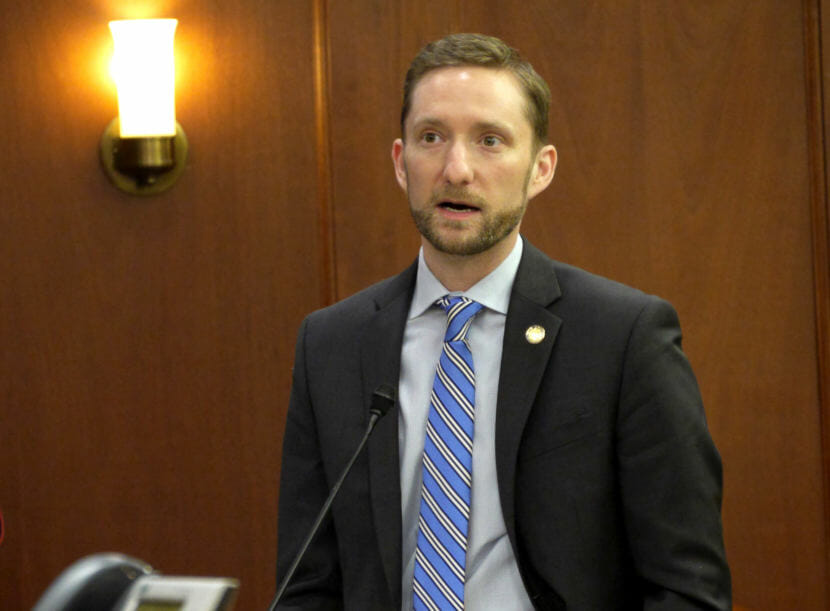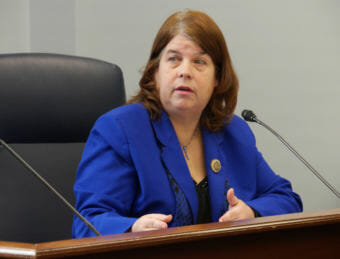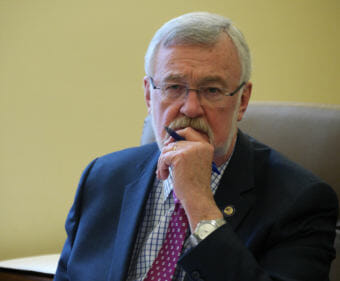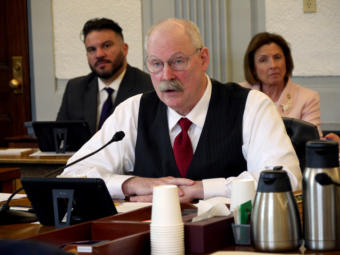
The council that handles state legislative business between sessions recently voted to allow lawmakers to collect per diem payments for the days they were in Juneau for the first special session. But critics say the vote conflicts with the intent of a law passed last year.
The Legislative Council voted 12-2 on June 13 to allow legislators to be paid $302 per day to cover expenses during the special session.
This is in line with how per diems have been handled in the past. But it was the first special session since the Legislature passed an ethics law last year that affects per diems. The law says a lawmaker isn’t entitled to per diems if the Legislature hasn’t passed a budget in the first 121 days of the session, until it has passed the budget. This year, that didn’t happen until the 26th day of the special session.
North Pole Republican Rep. Tammie Wilson was one of two votes against allowing per diems for that time period, along with Palmer Republican Rep. DeLena Johnson. Wilson said the intent of the law was clear.

“I can’t support this motion because I voted on this (law),” she said. “I know what I believe the intent of the legislation was. I understand maybe it’s somewhat ambiguous on that. I know people have expenses, but, you know, it wasn’t ambiguous in my mind.”
But Megan Wallace, the top lawyer for the Legislature, said that while the law bars lawmakers from receiving per diems before they pass the budget, they can be paid per diems retroactively once it’s passed.
“The language allows, or states, that per diem is not to be paid until after the budget has passed,” she said. “So now that the budget has passed, with this motion, retroactive per diem, in my opinion, would be permissible.”
Legislative Council chair Sen. Gary Stevens estimated most lawmakers spent 8-12 days in Juneau during the 29-day special session. They can choose whether or not to claim per diems for those days. They have until June 30 to submit the claims.
The total cost isn’t clear yet. But if all 57 lawmakers who can claim per diems choose to claim them for 10 days, it would cost the state $3,020 per lawmaker, or a total of roughly $172,000.
Stevens, a Kodiak Republican, agreed with Wallace’s interpretation of the law.

“I don’t think it is in violation of that (law),” he said. “I mean, you’ve heard from our attorney saying that what that bill did is to say you will not receive per diem until you pass the operating budget. And that’s understandable, and nobody received per diem until we passed the operating budget. And now that the operating budget has been passed, I think it’s legitimate. I think it’s appropriate that we provide per diem.”
Jason Grenn, an Anchorage independent, is a former representative who sponsored the law. He’s disappointed in the council’s vote.
“When people say, ‘Oh, well, that wasn’t the intent,’ or, ‘Oh, there’s this legislative legal loophole that we’re going to go around,’ I think legislators are really violating the spirit of the law, and in my opinion, the letter of the law,” he said.
Grenn noted the per diem restriction was in a proposed ballot initiative he sponsored. He later incorporated the provision in the law, instead of moving forward with the initiative.
“That’s all I heard from my neighbors when I was going door-to-door, was (them) saying, ‘Legislators are just padding their pocket. And that’s why they don’t do any work during special sessions,’” he said. “And I thought this would be a way to end those special sessions or get them done quicker … to hit legislators in their pocketbook. But, you know, they found a way around it. And they have to suffer the consequences from the public, I guess.”

Sitka Republican Sen. Bert Stedman argued for allowing the per diems. He said legislators could delay work on the budget to squeeze political opponents with less money or who are struggling to cover their family’s costs in Juneau.
“My concern is that this will turn into just another political weapon or leverage,” Stedman said.
Grenn said lawmakers who oppose the law on its merits should propose changing the law. He said it’s possible to save the state money by lowering per diems and increasing legislators’ salaries. But he called the Legislative Council’s vote “sad.”
